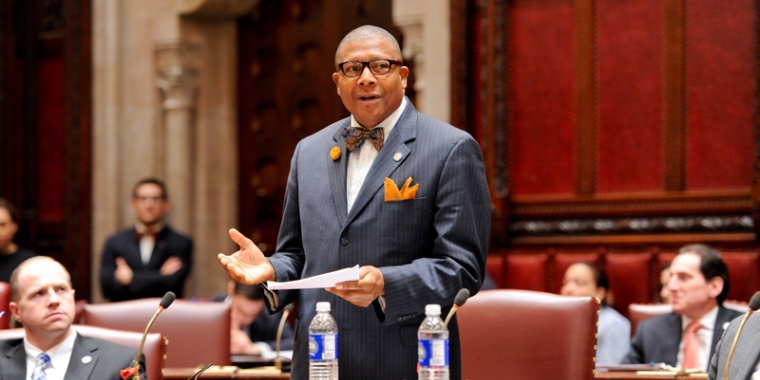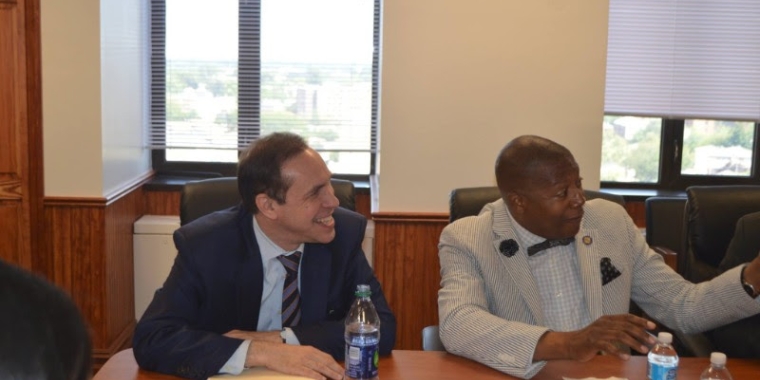
Sanders Says Budget Makes Progress But Is Not Progressive
April 10, 2017

State Senator James Sanders Jr. (D-Rochdale Village, Far Rockaway) today announced the passage of the 2017 – 2018 New York State budget, which makes improvements on both policy and revenue items, but falls far short of the progressive leadership New York State is renowned for throughout the nation and world.
“My Democratic colleagues and I have been fighting for common sense legislation that will grow the state economy as well as protect the rights of all New Yorkers,” Sanders said. “The budget negotiations were difficult, but in the end we were able to make some advancements in the areas of education, economic development and criminal justice. Though we can and should do more, this gives us a foundation upon which we can build.”
Below are some of the key budget wins and losses and those considered a draw:
Wins
- Raise the Age of criminal responsibility to age 18 and ensures that young people who commit non-violent crimes receive treatment and are rehabilitated.
- Increased aid to local school districts
- Ride-sharing to spur economy upstate
- Investment in clean water infrastructure
- a record-low tax reduction for middle-class New Yorkers
Losses
- Affordable NY Housing Program/421A Right now 421-a costs the City $1.2 billion a year in foregone taxes. For $1.2 billion a year, the City gained $11 worth of affordable housing for every $100 lost.
- Failure to pass the DREAM Act to help thousands of New Yorkers who only want a fair shot at earning an education and achieving the American Dream.
- No ethics reforms to root out corruption that hurts our taxpayers
- No investment in making it easier for people to vote
- Failure to protect New Yorker’s health coverage from a repeal of the Affordable Care Act
- Failure to implement a single payer insurance plan.
Draw
- Free SUNY/CUNY tuition will benefit many middle class students. However, lower income students may not be able to take advantage of the program since it call for all PELL / TAP assistance to be exhausted before one can take advantage of the program. In addition, the funding does not cover textbooks, housing or food.
- The Department of Economic Development must prepare an annual comprehensive economic development report listing all assistance it provided for but not limited to tax expenditures; marketing and advertising; grants; awards; and loans. The results of the data gathering are not available yet.
- The establishment of two new scholarship programs does not go nearly far enough to support our public institutions of higher education. The Democratic Conference supports a multi-year approach to increasing resources to public higher education institutions and their students under the newly created EducateNY program.
- The State of New York commissioned a Disparity Study to determine whether Minority and Women-Owned Business Enterprises (MWBE) have had equal access to contracting opportunities with state agencies and authorities. It was to be completed by August 2016, however the legislature has still not received it, so we are considering it a draw at this point because we do not know what information it will reveal.
- Workers compensation reform, which was included in the budget, does not go nearly far enough to protect workers who are injured on the job, particularly those who may need lifetime disability benefits.

